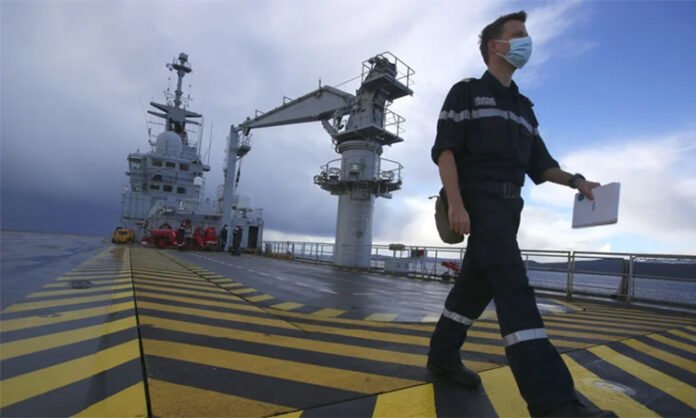Paris: The pace of change in maritime warfare requires Western navies to innovate faster and work more intimately with industrial partners to defeat evolving threats, the heads of the French and UK navies said.
Navies can no longer count on ships staying relevant over their 40-year lifespan, and weapon systems will change “dramatically” over such a period, French Navy Chief of Staff Adm Nicolas Vaujour said at the Euronaval industry conference outside Paris.
Weapon systems may need to be adapted as frequently as every year, requiring ship architecture that allows for systems to be plugged in and changed when needed, Vaujour said.
“We have to build adaptable by design,” Vaujour said. “You must build the ship to be adaptable during 40 years, which is quite tricky.”
Navies from the US, China and Russia, as well as France and the UK, have been testing maritime weaponry ranging from swarming drones and lasers to hypersonic anti-ship missiles and rail guns in the past three years, while progress in artificial intelligence has allowed for increasingly autonomous unmanned vehicles.
The French government has proposed to lift the 2025 defence budget to €50.54 billion (US$55 billion) from €47.23 billion this year.
Generational technology change is happening much faster than the time it takes to construct a ship, meaning navies need to implement new capabilities “far quicker than the speed at which we can build a hull,” according to Adm Sir Ben Key, First Sea Lord and Chief of Naval Staff of the UK’s Royal Navy.
“So you have to detach the operational capability from the platform that’s going to take you there,” Key said. “That is quite a mindset change for us.”
Ukraine has been using missiles, unmanned aerial vehicles and seagoing drones to deny Russia access to much of the Black Sea, despite having little navy to speak of. In the Red Sea, Yemen’s Houthi rebels have targeted commercial vessels with drones and ballistic missiles, prompting freight traffic from Asia to Europe to reroute around Africa.
“If you stay with your old doctrine, you will be dead very rapidly,” Vaujour said. “What we saw in the Red Sea is that we have to adapt very quickly our system.”
The response of the French and British navies to the Houthi threat showed how learning accelerated when the urgency was understood, according to Key.
Both navies worked with MBDA to improve missile performance and software, and “learning time had to be dramatically reduced, because this was no longer a science project being done in the sea off Toulon or in the waters off Plymouth,” Key said.
The lesson was that forces need to be “much sharper” about focusing on the factors that really matter, rather than seeking a perfect solution that will be late, according to the British admiral. That will be a challenge, “because we’ve been brought up in the pursuit of perfection, and actually, we haven’t got time for that,” Key said.
Raksha Anirveda's editorial desk team brings in the collective experience of creative professionals - a fine mix of senior copy editors, writers, proofreaders and designers. Working as a team, they continuously create, manage, and curate content to sustain the magazine's profile and reputation in line with market trends and achieve magazine's goal.





